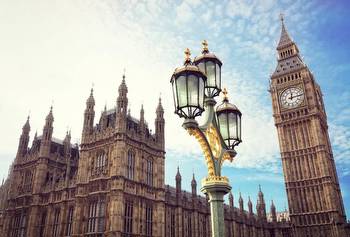NHS Chief Urges Cryptocurrency Regulation Amidst Rising Gambling Problems
Unregulated gambling on cryptocurrency is creating increased demand in NHS gambling clinics, according to Amanda Pritchard, the head of the health service. She emphasized the urgent need for regulatory action to prevent young people from becoming addicted to new forms of betting, arguing that the NHS cannot continue to bear the burden of societal issues.
Pritchard highlighted the rising number of individuals seeking treatment after attempting to gain wealth through cryptocurrency trading, such as Bitcoin, or by gambling on the market. She noted that the 15 specialist gambling clinics established across the country are addressing a "real and growing social need" for treatment, describing gambling addiction as "a cruel disease which has the power to destroy people’s lives."
Addressing the Confed Expo conference of NHS managers, Pritchard warned that the health service could not become an "expensive safety net" for societal problems. She questioned whether society should continue allowing methods that keep people hooked to become increasingly sophisticated.
Increased Demand for Treatment
Pritchard's call for regulatory measures comes amidst reports from NHS staff of younger individuals becoming addicted to gambling on unregulated cryptocurrency markets. She emphasized that the NHS, already strained post-COVID, cannot afford to serve as a catch-all for these issues. "That kind of service is what the NHS was born as, but it shouldn’t be our ambition now," she stated.
Last year, the Treasury Select Committee recommended that trading in bitcoin and other speculative cryptocurrencies be regulated as gambling to protect consumers from the risks of the $1.2 trillion market. A 2022 survey cited by the committee found that about one in ten adults in the UK have held crypto assets, often viewing them as a "fun investment." Anecdotal evidence also suggested that school children were speculating on these markets.
Cryptocurrency and Gambling Addiction
Pritchard described the addictive nature of investing in cryptocurrencies, where people risk their money on assets with no fixed value. She expressed concern that this growing problem could increase demand for NHS services. "The addictive habit sees people investing their own money in something with no fixed value, with the NHS left to pick up the pieces," she said.
Pritchard also pointed to a "rising tide" of patients suffering from obesity-related illnesses, including a significant increase in pre-diabetic individuals. The national diabetes audit revealed that more than half a million additional people have been identified as pre-diabetic within the past year, representing a nearly 20% increase.
The combination of rising gambling addiction and other health challenges highlights the increasing pressures on the NHS. Pritchard's call for regulatory action underscores the need for societal changes to address these growing issues and alleviate the strain on healthcare services.





































